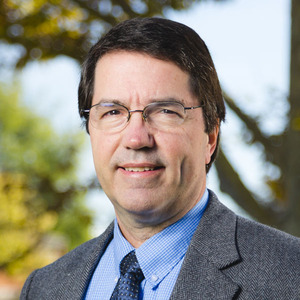The following post is a series on The Good Book Blog featuring devotionals from the collection, “Feeding the Soul of the Bible Study Leader.”
So those who received his word were baptized, and there were added that day about three thousand souls. And they devoted themselves to the apostles’ teaching and the fellowship, to the breaking of bread and the prayers. And awe came upon every soul, and many wonders and signs were being done through the apostles. And all who believed were together and had all things in common. And they were selling their possessions and belongings and distributing the proceeds to all, as any had need. And day by day, attending the temple together and breaking bread in their homes, they received their food with glad and generous hearts, praising God and having favor with all the people. And the Lord added to their number day by day those who were being saved. (Acts 2:41-47, ESV)
This passage comes at the end of the amazing story of Pentecost, when the Holy Spirit came upon the gathered apostles like a mighty wind and enabled them to speak in other languages. As they spoke, Jewish people from various nations who had gathered in Jerusalem during Shavuot, or the Feast of Weeks, were able to hear and understand in their own language about the mighty works of God accomplished in Jesus’ death and resurrection. This festival, held 50 days after Passover, was one of three pilgrimage festivals, where Jewish males would come to Jerusalem, bringing offerings. It brought Jews from many nations to Israel. It was a joyful feast celebrating the harvest, and God chose this gathering to be the launching point for the apostles’ ministry. The reaction of the crowd to the apostles was mixed, with most being amazed and perplexed by what they heard, but others mocked the apostles, attributing their strange behavior to too much wine.
At this point, Peter, the apostle Jesus commissioned to “feed my sheep” (John 21:15-17), preached a powerful sermon, declaring that Jesus of Nazareth, whom they had crucified, had been raised from the dead. He was the Christ, the prophesied Savior and Lord, and what they were seeing and hearing that day was the fulfillment of the promise of the Holy Spirit whom God had sent.
As this passage begins, we see that many of the people responded in faith, and about three thousand were baptized that day. This was an amazing response to Peter’s evangelistic message, and I find what he and the other apostles did next so instructive for my own teaching ministry. More sheep had joined the flock, but they needed to be fed so they could grow in their new faith.
The passage tells us that these new believers devoted themselves to the apostles’ teaching, to the fellowship of this new community, to sharing meals with each other and praying together. They shared their resources to care for each other’s needs, worshiped at the temple, and gathered in homes for common meals, praising God. In all of this, they had favor with the people in Jerusalem, and more and more people came to faith in Christ through their witness and example. What a powerful and amazing experience!
Sometimes in the church we feel a bit of tension between our efforts to share the gospel message with others and to teach or “disciple” those who have already responded in faith. How much priority should we give to each aspect? Here, in Acts 2, we see a good example of how the apostles handled this. They began with a strong evangelistic emphasis as they shared the gospel with the people on the Day of Pentecost, and followed up that initial message with daily teaching in the Temple courts. All of the new believers devoted themselves to this teaching, fellowship, and prayer, and in turn, influenced others to put their faith in Christ.
I find it helpful to think about evangelism as “obstetrics,” delivering a new baby that has come to full term. The doctor does not create the baby, God does, but the doctor aids in its delivery when the time is right and ensures it begins life safely. But new babies have many needs, and I like to think of discipleship as “pediatrics,” providing care and proper diet to help the new baby grow healthily. The apostles understood that both aspects of their ministry were important, and they continued to proclaim the gospel message and to teach these new disciples all that Jesus had commanded, just as he told them to (Matt. 28:16-20).
I want my own ministry to have these same priorities, and to take the same care with new believers that the apostles showed. Too often evangelistic gatherings take place where people come to faith in Christ, but they receive limited follow up to support, ground and feed them as new believers. On the other hand, too often we continue to feed the sheep we have without looking beyond our own flock to whoever else needs to hear the gospel message and be invited into God’s flock. I find I lean heavily toward the pediatrics side, and I need to give more priority to obstetrics. I enjoy the opportunity to teach, the fellowship together, praying with my brothers and sisters in Christ, but I need a greater vision for how to take the gospel message to others who need to hear it.
How about you and your church? As you read about the apostles and the way they launched their ministry of making disciples, what aspects are reflected well in your church’s ministry, and in your own teaching ministry? Where might God want you to stretch outside your usual emphasis? May God give you a growing desire and understanding of how to see both aspects — obstetrics and pediatrics — reflected well in your ministry.
Father, it is exciting to see Peter rise to the occasion and share the gospel message with the crowd at Pentecost. You transformed him from someone who was afraid to be identified with you to a courageous evangelist and teacher of your gospel. I pray that you would do that same transforming work in me, giving me greater clarity and confidence to share your gospel message and to feed the sheep of your flock as you give me opportunity to support those you have brought to faith. May you be glorified in all of this, and may others who see your transforming work in our lives desire to know you, the God who redeems and transforms. Amen.
This devotional is one of fifty-two from a collection, “Feeding the Soul of the Bible Study Leader.” If you would like to read more or share them with a friend, you can access them online at and they are also available in book form through Amazon.com
 51ÂÜŔň
51ÂÜŔň

.jpg)


.jpg)